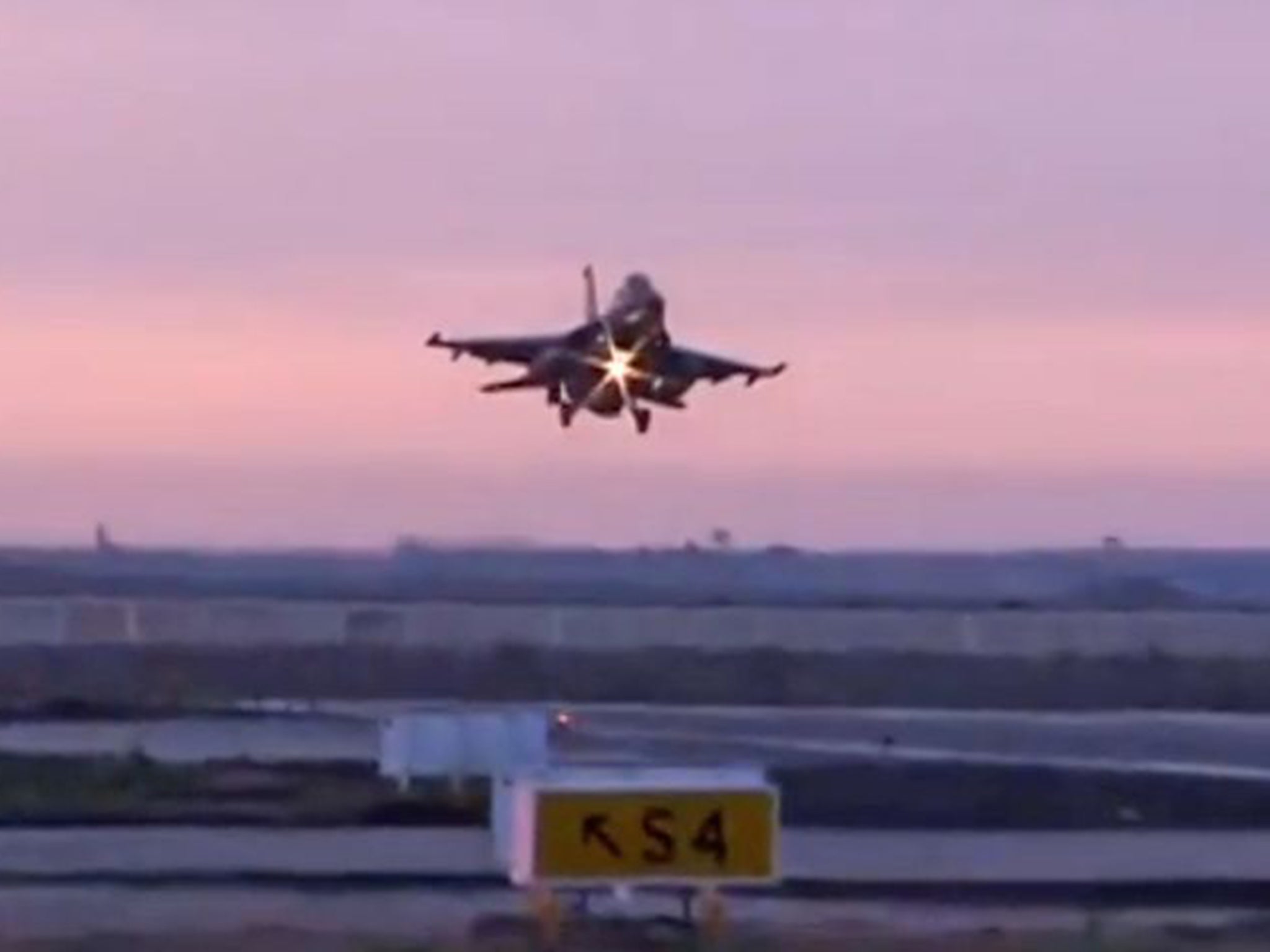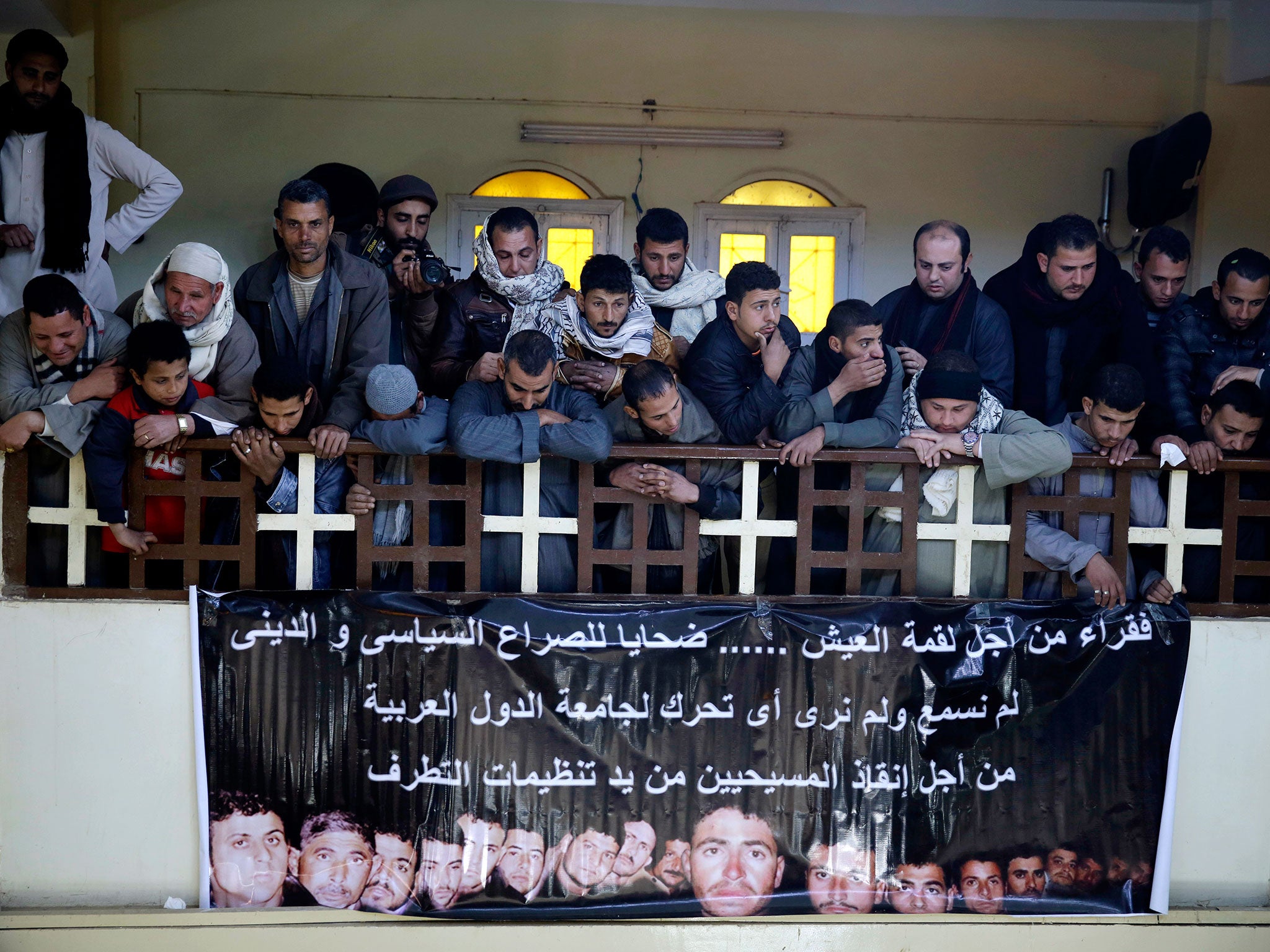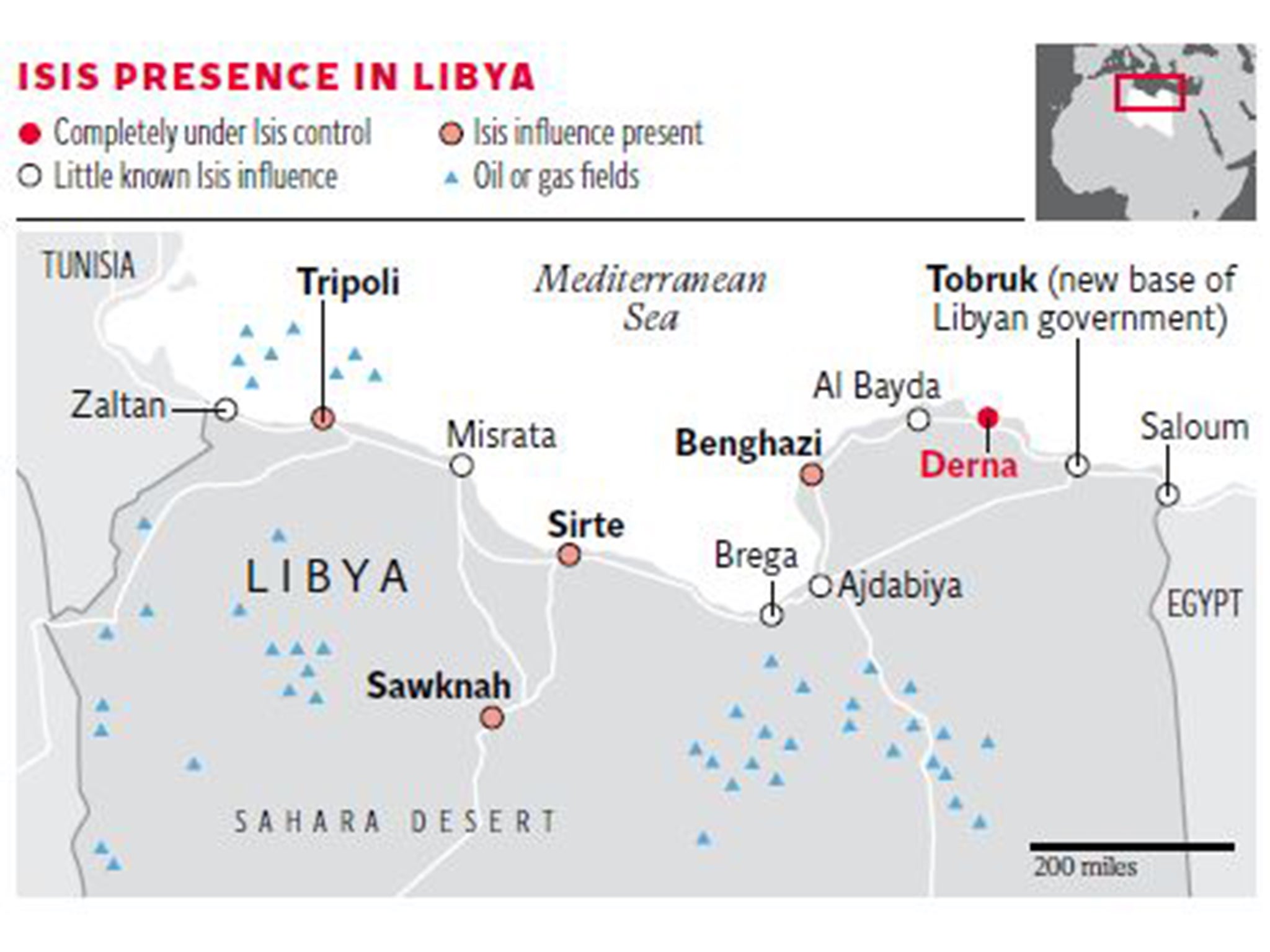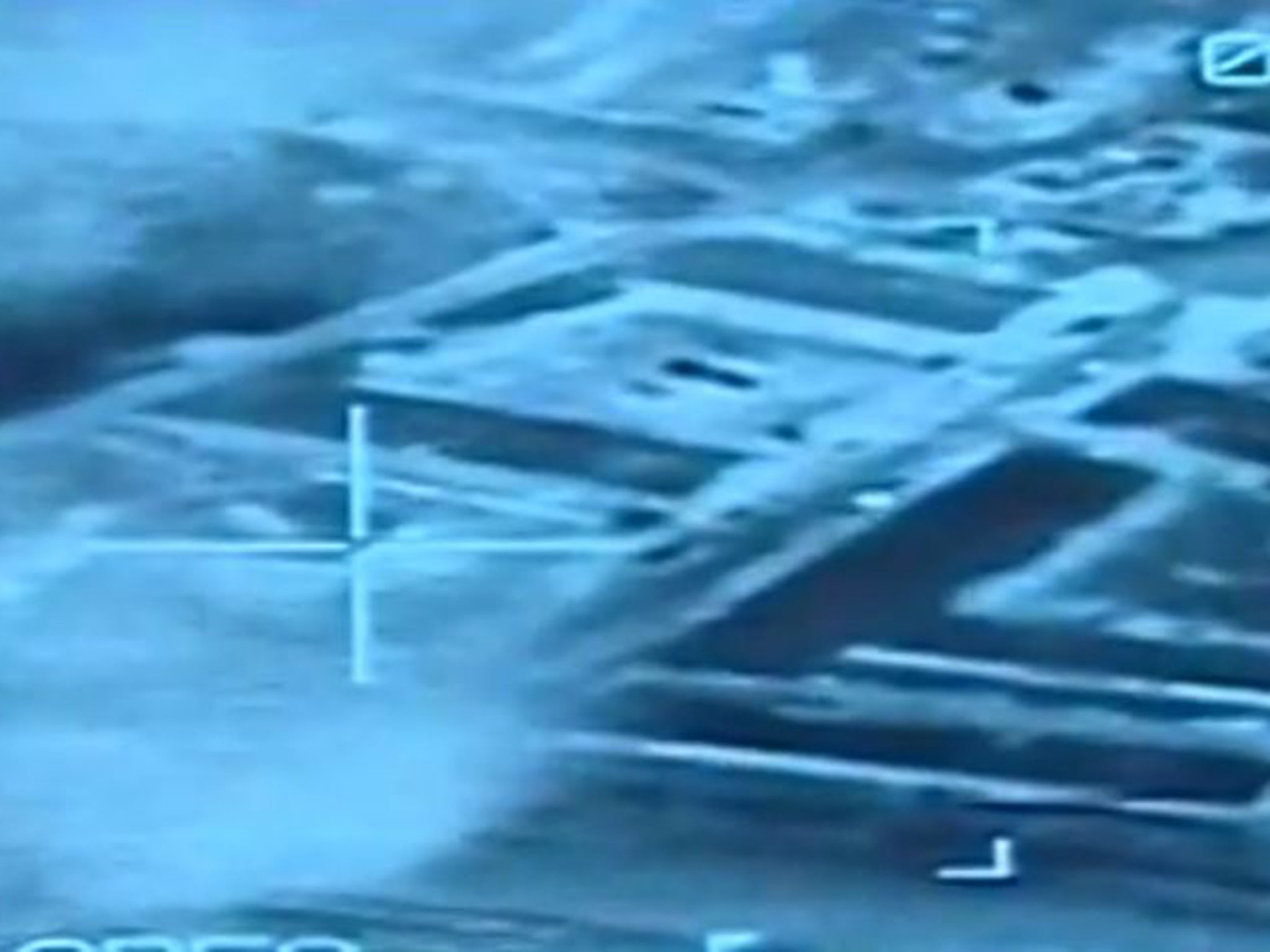Isis: Egypt joins attacks with air strikes avenging massacre
Bombers strike at Libyan targets after murder of 21 Egyptian Christians

Your support helps us to tell the story
From reproductive rights to climate change to Big Tech, The Independent is on the ground when the story is developing. Whether it's investigating the financials of Elon Musk's pro-Trump PAC or producing our latest documentary, 'The A Word', which shines a light on the American women fighting for reproductive rights, we know how important it is to parse out the facts from the messaging.
At such a critical moment in US history, we need reporters on the ground. Your donation allows us to keep sending journalists to speak to both sides of the story.
The Independent is trusted by Americans across the entire political spectrum. And unlike many other quality news outlets, we choose not to lock Americans out of our reporting and analysis with paywalls. We believe quality journalism should be available to everyone, paid for by those who can afford it.
Your support makes all the difference.Egypt opened a new front in the war against Isis when its bombers pounded targets inside Libya, as Cairo responded to the murder on Sunday of 21 Egyptian Christians at the hands of the Islamist group.
The attack – the first publicly acknowledged deployment of Egypt’s air force since the 1991 Gulf war – hit targets close to Derna, the eastern Libyan city that since last year has been under Isis’s control. According to statements from Libya’s recognised government, between 40 and 65 militants were killed in the initial raids that targeted training facilities and munitions sites. The Libyan air force also took part in the attacks.
It followed graphic video images of the Isis captives – poor labourers from central Egypt who were kidnapped last month – being beheaded on a beach, turning the Mediterranean red with their blood.
“We assure that we will take revenge for Egyptian blood and that taking punishment against criminal killers is our right and duty,” said a video message posted on Facebook by the Egyptian military.
War planes carried out their first sorties at dawn, followed by fresh attacks around midday. Egypt’s secular government, led by the former field marshal, Abdel Fattah al-Sisi, has long been assumed to be providing clandestine assistance to the Libya government as it attempts to tackle Isis’s growing influence, but yesterday’s raids brought that into the open.
The air assault means the war against the group now has front lines in three different countries – Syria, Iraq and Libya – with Egypt the latest to join what is finally beginning to resemble a pan-Arab coalition against Isis. Additionally, the US, the UK and France have continued air raids against the group and yesterday, in a surprise move, 4,000 American combat soldiers were assigned to bases in Kuwait, raising the possibility that troops could soon be deployed.
The US refused to comment on the deployment and in the past has ruled out all but small-scale ground operations. The Iraqi government has denied the need for outside intervention. However, the move follows the transfer of significant numbers of Jordanian troops to its border with Iraq.

While any land invasion operation – by whichever country – would be highly controversial and fraught with risks, Isis has made significant recent gains in Iraq, where at the weekend it launched attacks close to an air base housing US soldiers, and in Libya.
Now Middle Eastern governments, which have long been charged with allowing the West to lead the fight against Islamist fundamentalism, are seen taking the fight to Isis themselves.
In Syria and Iraq, Jordan – in coalition with other Arab states and with Western countries – has increased the number attacks on Isis targets since the murder of its fighter pilot, Muath al-Kasaesbeh, which was confirmed two weeks ago.
Yesterday, Omar al-Sinki, Libya’s Interior Minister, said: “There will be more co-ordinated air strikes in the future with Libya and Egypt operating side by side.” Meanwhile, the UAE said its aircraft had attacked oilfields in Syria that had fallen into Isis’s hands.

Mr Sisi is gambling that his military’s swift response to the beheadings will lay down a marker against Islamism in Egypt, especially in the Sinai peninsula, the scene of several attacks against Egyptian targets in recent months.
“The Egyptians couldn’t be seen to be acting less ferociously than Jordan did in response to the murder of the pilot. The Egyptian action is clearly a serious involvement, rather than simply window-dressing,” said Sir Richard Dalton, the UK’s former ambassador to Libya and Iran. “But it will take much more than one day’s bombing to address the situation.”

The conflagration also lays bare the lawlessness in much of Libya, which creates the conditions that enable Isis to secure a foothold. On Friday and Saturday, a successful effort was launched by Isis-linked militants to capture the town of Sirte, the birthplace of Muammar Gaddafi. While independent militias have promised to retake the town, for now it is under the control of groups sympathetic to Isis.
The Egyptians are thought to have been killed near Sirte, although it is believed that the group responsible was not the same as the one holding Derna. The beheadings were the latest in a series of public executions that have been carried out by Isis-linked groups in the country, including an attack last month on the Corinthian Hotel in Tripoli in which nine people were killed.
The country has rival governments. The Western-backed administration meets in a hotel in Tobruk, a city near the Egyptian border, 600 miles from Tripoli. It was chased out of the capital by a broadly Islamist faction last year.
Join our commenting forum
Join thought-provoking conversations, follow other Independent readers and see their replies
Comments